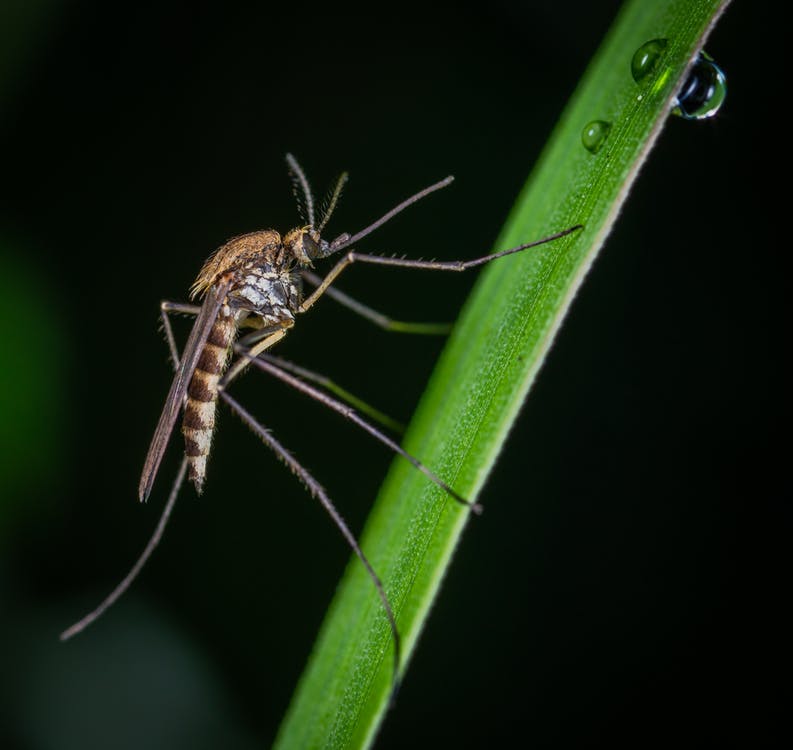Mosquito repellent plants include trees, shrubs, or herbs that release odors that usually annoy mosquitoes. Those odors are the outcome of removing essential oils and sap used by the plants as part of their regular life cycle.
Ancient settlers quickly discovered this many years ago, that mosquitoes appeared to avoid such plants. By keeping a tight track on the one they prevented, people gathered a list of plants to repel mosquitoes, flies, and other biting insects.
Mosquitoes are lured into the water, too. These plants would be appealing to mosquitoes, whether you have water lilies, water hyacinths, water lettuce, Taro, or papyrus on your yard.
These little biters will also be drawn to a yard, which gets a lot of watering. This is because mosquitoes breed in still water.
Furthermore, you can call a professional mosquito exterminator to know how to get rid of mosquitos and to inspect your surroundings to find the root of the infestation. However, you can start growing beautiful, yet pest repellants in your yard.
Every plant or tree that has leaves that can carry water for these pests is an attractant. Here is a list of plants that prevent mosquitoes’ infestation.
Lavender
Lavender is a beautiful purple sweet-smelling flower, which people enjoy but detest by mosquitoes. The lavender plant’s oils produce heavy, pungent odors that repel mosquitoes, moths, fleas, flies, and spiders. Which makes it an excellent plant for your flower bed or garden. It is not harmful to your livestock and is drought tolerant, making it a good option for dry climates.
A lovely plant attracts pollinators, including bees and butterflies, while repelling the unwelcome pests. You can apply lavender to your tea, too.
Mint
There are several members of the mint family, and they include mint (Mentha spicata), peppermint (Mentha x Piperita), and pennyroyal (Mentha pulegium). Bugs of all sorts, spiders, and even rodents detest all mint family scent, particularly peppermint. Mint oil can eliminate mosquito larvae in pools of stagnant water where they breed, so it does more than repel them. Mints are present in all parts of the plant; flowers, leaves, and stems. It can all be used in repelling mosquitoes and other unwanted insects.
Sage
Sage is a popular kitchen herb. It has all sorts of antioxidants in it as an extra benefit too. It is a plant resistant to drought, making it a popular option for people living in dry climates. This plant can grow up to 3-1/2 feet tall, so planting it along your yard or garden borders is an excellent way to create a border. Although sage should be burnt and allowed to smolder for a better effect, throwing off clouds of smoke scare mosquitoes away.
It attracts butterflies, which are also known as pollinators. Note: sage is not dangerous to dogs, but it is poisonous to cats. So, if you are a cat owner, you might want to refrain from using this method of getting rid of mosquitoes.
Alliums
Alliums are great plants that have the innate ability to repel a variety of insects that invade your garden or yard. This is a top choice for many people due to its round puffy heads; it can be up to six feet tall on top of a stalk.
These plants are capable of repelling aphids, cabbage bugs, carrot flies, mosquito, and slugs. Vegetables including broccoli, peppers, cabbage, carrots, kohlrabi, and tomatoes are also gained from being next to this plant.
Eucalyptus
Eucalyptus trees continuously release a heavy smell that is very effective at repelling mosquitoes. There are many eucalyptus species, and all are good at keeping out mosquitoes.
Eucalyptus is also poisonous to dogs and cats. It can be very toxic to them whether they ingest it or have it on them. If you plan to do it, keep the low-hanging branches cut to prevent them from hitting the ground and have the leaves raked at all times or better still, go for other options.
Basil
Basil is a fragrant plant, which repels insects and bugs, such as houseflies and mosquitoes. It performs well to repel mosquitoes when placed in a planter and then positioned close the door and outdoor sports.
It is the pungent smell of basil, which helps in repelling mosquitoes. There are many basil forms, and it appears that cinnamon basil and lemon basil perform well in repelling mosquitoes. The basil plant poisons mosquito larvae.
Catnip
The same thing that makes cats go nuts is Catnip, which also repels termites and cockroaches, and mosquitoes. Studies have shown that it contains a chemical known as nepetalactone, making it one of the best plants available to repel mosquitoes.
In repelling mosquitoes, it seems stronger than DEET, one of the most well-known insect repellents on the market. Planting catnip along the borders of your yard or garden will, first of all, discourage mosquitoes from invading your house.

